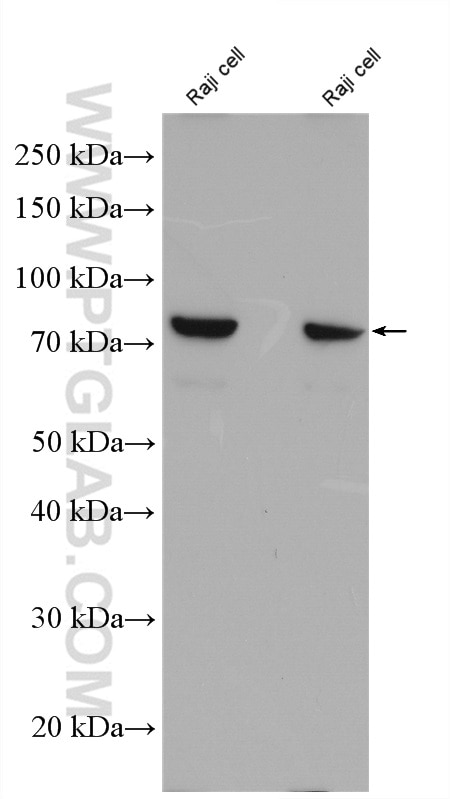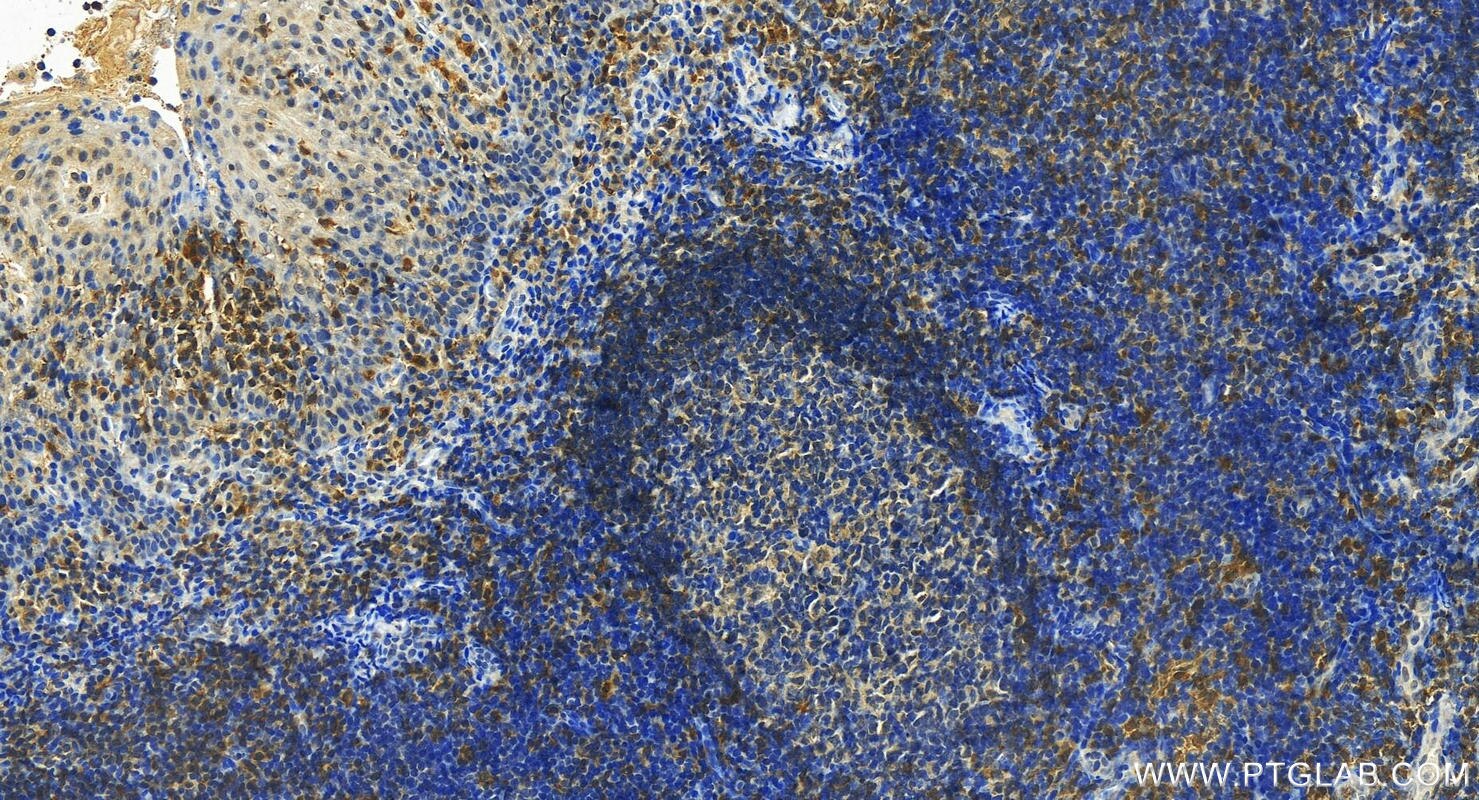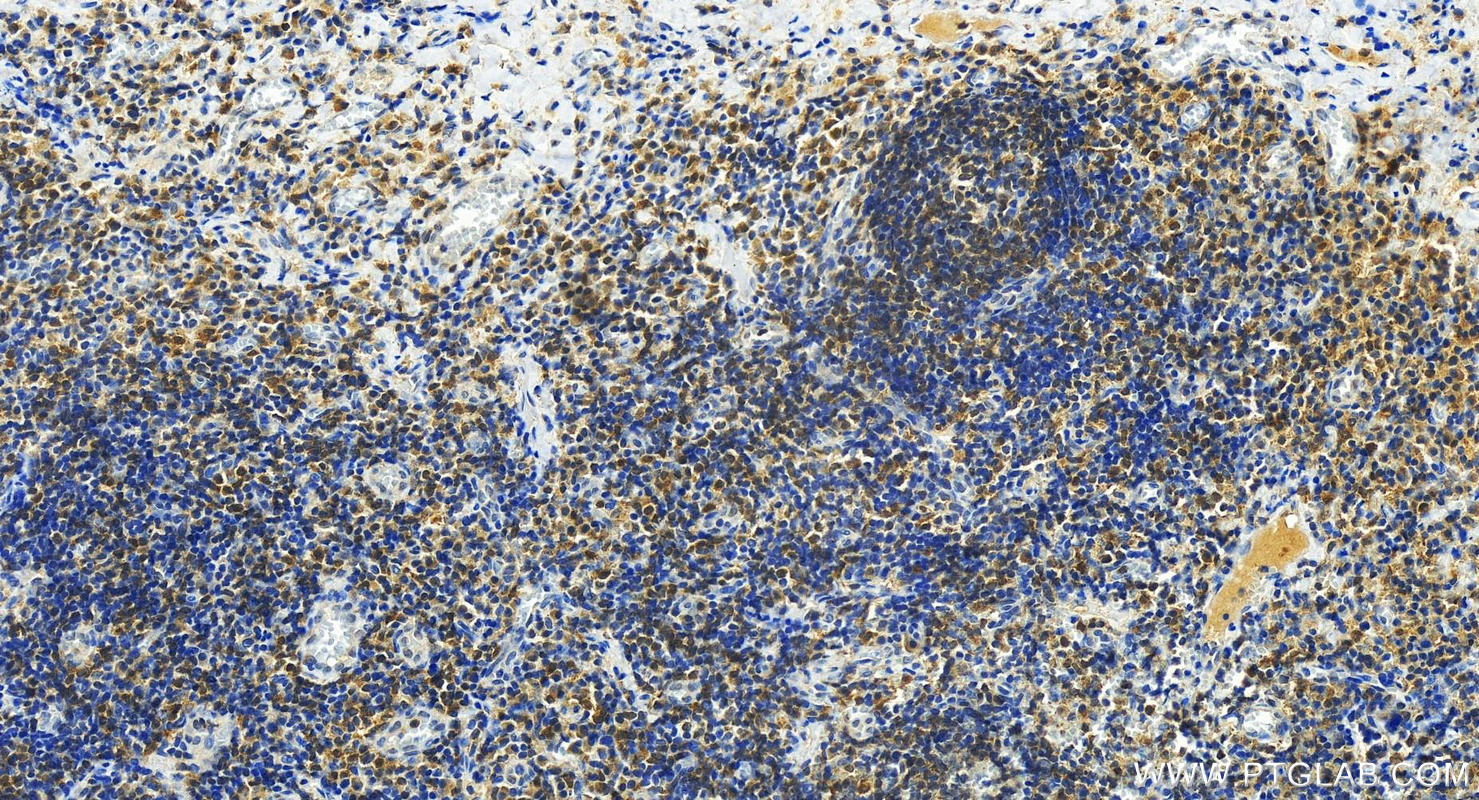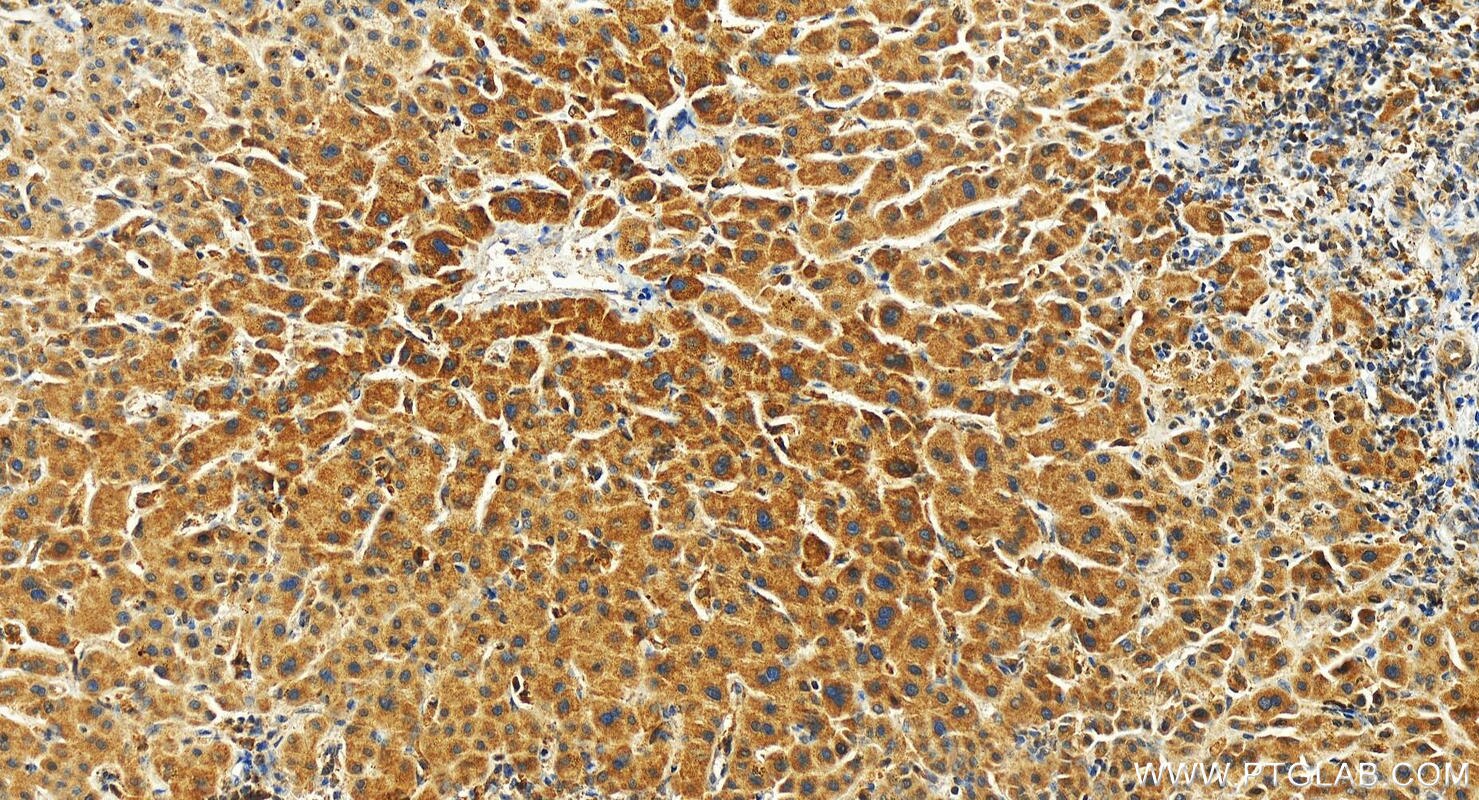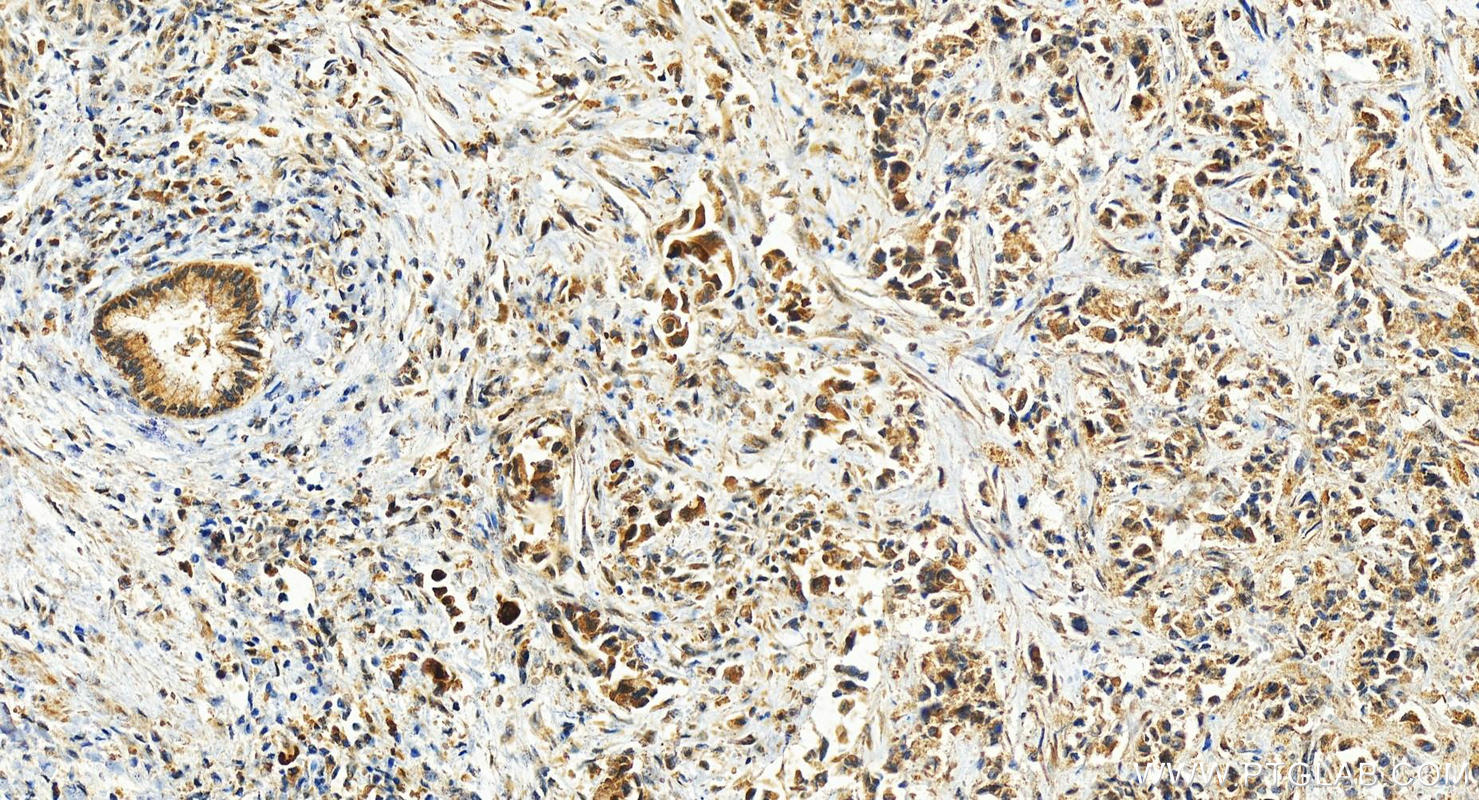Anticorps Polyclonal de lapin anti-FGD2
FGD2 Polyclonal Antibody for WB, IHC, ELISA
Hôte / Isotype
Lapin / IgG
Réactivité testée
Humain
Applications
WB, IHC, ELISA
Conjugaison
Non conjugué
N° de cat : 27068-1-AP
Synonymes
Galerie de données de validation
Applications testées
| Résultats positifs en WB | cellules Raji, |
| Résultats positifs en IHC | tissu d'amygdalite humain, human intrahepatic cholangiocarcinoma tissue il est suggéré de démasquer l'antigène avec un tampon de TE buffer pH 9.0; (*) À défaut, 'le démasquage de l'antigène peut être 'effectué avec un tampon citrate pH 6,0. |
Dilution recommandée
| Application | Dilution |
|---|---|
| Western Blot (WB) | WB : 1:500-1:2000 |
| Immunohistochimie (IHC) | IHC : 1:50-1:500 |
| It is recommended that this reagent should be titrated in each testing system to obtain optimal results. | |
| Sample-dependent, check data in validation data gallery | |
Informations sur le produit
27068-1-AP cible FGD2 dans les applications de WB, IHC, ELISA et montre une réactivité avec des échantillons Humain
| Réactivité | Humain |
| Hôte / Isotype | Lapin / IgG |
| Clonalité | Polyclonal |
| Type | Anticorps |
| Immunogène | FGD2 Protéine recombinante Ag25782 |
| Nom complet | FYVE, RhoGEF and PH domain containing 2 |
| Masse moléculaire calculée | 655 aa, 75 kDa |
| Poids moléculaire observé | 75 kDa |
| Numéro d’acquisition GenBank | BC023645 |
| Symbole du gène | FGD2 |
| Identification du gène (NCBI) | 221472 |
| Conjugaison | Non conjugué |
| Forme | Liquide |
| Méthode de purification | Purification par affinité contre l'antigène |
| Tampon de stockage | PBS with 0.02% sodium azide and 50% glycerol |
| Conditions de stockage | Stocker à -20°C. Stable pendant un an après l'expédition. L'aliquotage n'est pas nécessaire pour le stockage à -20oC Les 20ul contiennent 0,1% de BSA. |
Informations générales
FGD2 is a member of the formin family of proteins, which are known for their role in regulating the assembly of actin filaments. Formins are characterized by their ability to nucleate and elongate actin filaments, and they play a crucial role in processes that require dynamic actin structures, such as cell motility and cell division. Mutations or alterations in FGD2 have been associated with certain developmental disorders and diseases. For example, mutations in FGD2 are a cause of faciogenital dysplasia (Aarskog-Scott syndrome), a condition characterized by facial and genital abnormalities and short stature.
Protocole
| Product Specific Protocols | |
|---|---|
| WB protocol for FGD2 antibody 27068-1-AP | Download protocol |
| IHC protocol for FGD2 antibody 27068-1-AP | Download protocol |
| Standard Protocols | |
|---|---|
| Click here to view our Standard Protocols |
